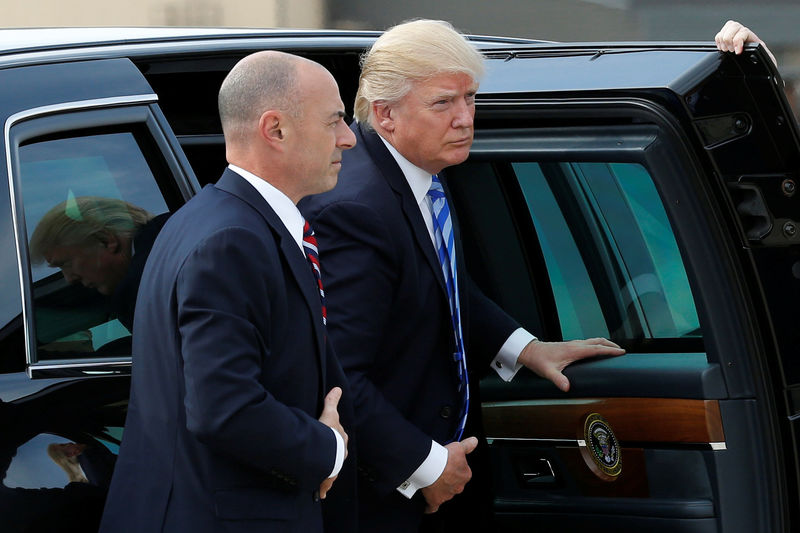By Peter Szekely
NEW YORK (Reuters) - Tens of thousands of people are expected to take to the streets across the United States and beyond on Saturday to press President Donald Trump to release his tax returns and to dispute his claim that the public does not care about the issue.
The demonstrations, organized by a loose coalition of labor and left-leaning groups with various economic agendas, are intended to focus on Trump's refusal to disclose his tax-paying history, something his predecessors in the White House have done for more than 40 years.
"When we check in with our members, this is something they care about deeply," said Ben Wikler, Washington director of MoveOn.org, a progressive political group.
Critics have raised questions about what Trump's tax returns say about his net worth and about his various business ties.
Organizers of "Tax March" are planning events in more than 150 cities, including New York, Washington and Los Angeles, as well as cities in Europe, Japan and New Zealand.
As a candidate and as president, Trump has steadfastly refused to release his tax returns, citing an ongoing audit by the Internal Revenue Service. In September, he told ABC News, "I don't think anybody cares, except some members of the press."
The IRS has said that Trump can release his tax returns even while under audit.
The demonstrations are taking place on the traditional April 15 Tax Day, the deadline for filing federal tax returns, although the IRS this year pushed back the deadline by three days.
The Trump tax marches were launched by a single tweet, organizers said.
A day after the massive Jan. 21 women's march in Washington and other cities, comedy writer Frank Lesser tapped out on Twitter, "Trump claims no one cares about his taxes. The next mass protest should be on Tax Day to prove him wrong." It has been retweeted more than 21,000 times.
Organizers said they stuck with the traditional April 15 Tax Day for the marches because as a Saturday it would draw more attendance, even though this year's income tax filing deadline was pushed back to Tuesday.
Joe Dinkin, spokesman for the Working Families Party, which is also planning the marches, said ongoing investigations into the Trump campaign's connections with Russia underscore the need to disclose his returns.
"Without seeing his taxes we'll never really know who he's working for," said Dinkin, who expects the marches to draw at least 100,000 protesters.
There have been some glimpses into Trump's tax history. Last month, MSNBC host Rachel Maddow released two pages of Trump's 2005 return that were obtained by investigative reporter David Cay Johnston. They showed Trump paid $38 million in taxes on more than $150 million in income. And last October, The New York Times reported that Trump had declared a $916 million loss on his 1995 federal tax return, citing three pages of documents from the return.

In a Quinnipiac University poll released on April 4, more than two-thirds of the respondents said Trump should publicly release his tax returns. Other recent polls had similar results.